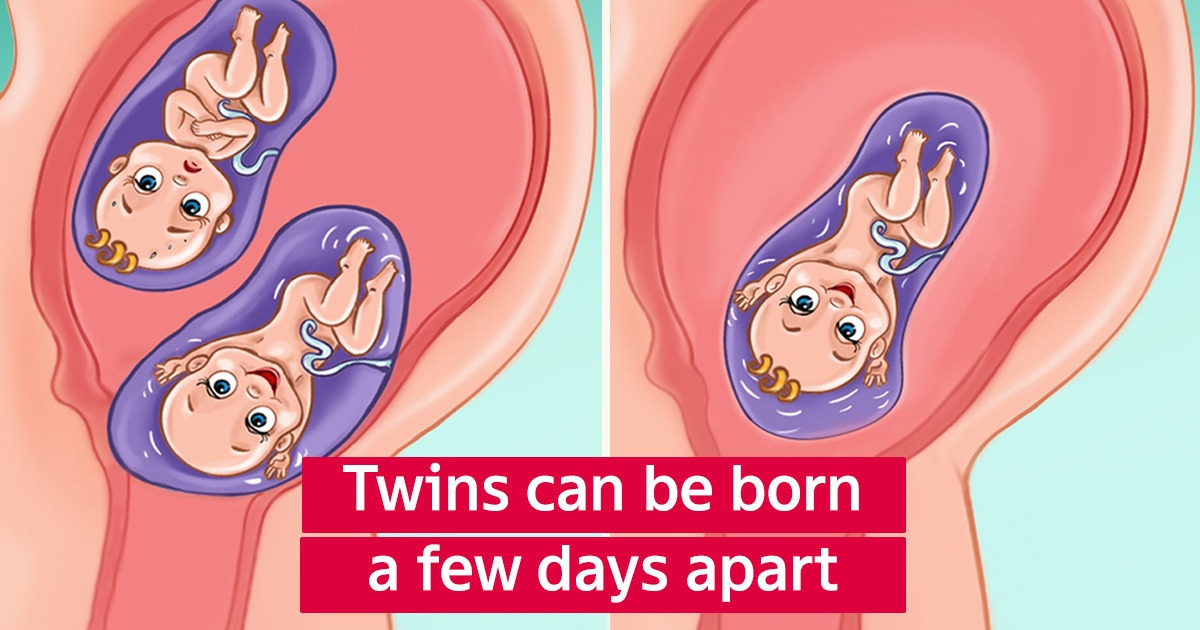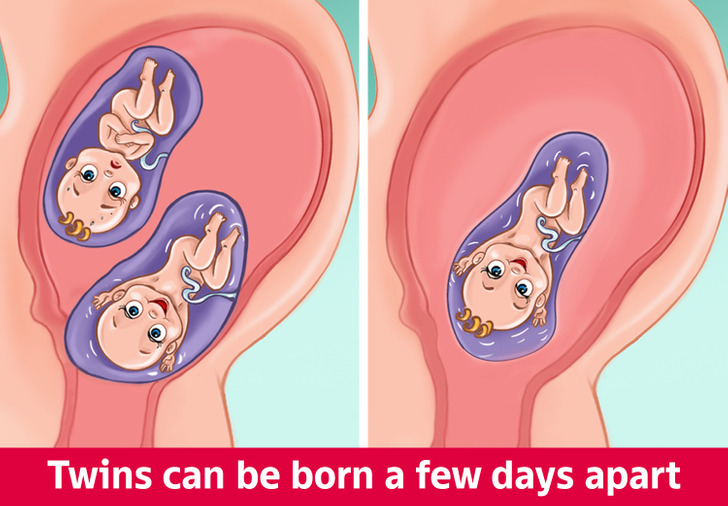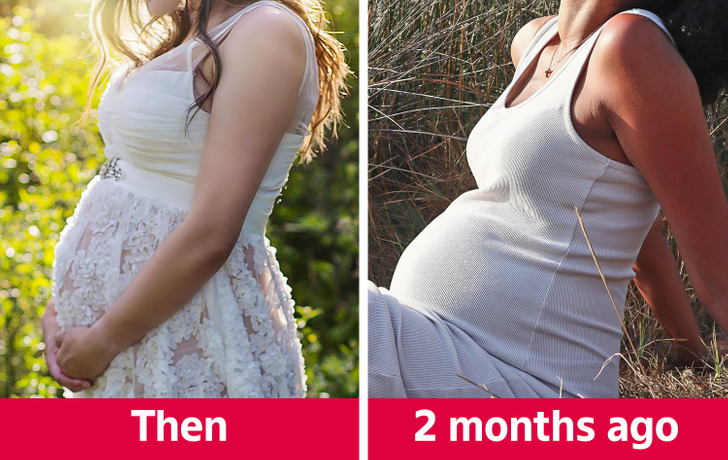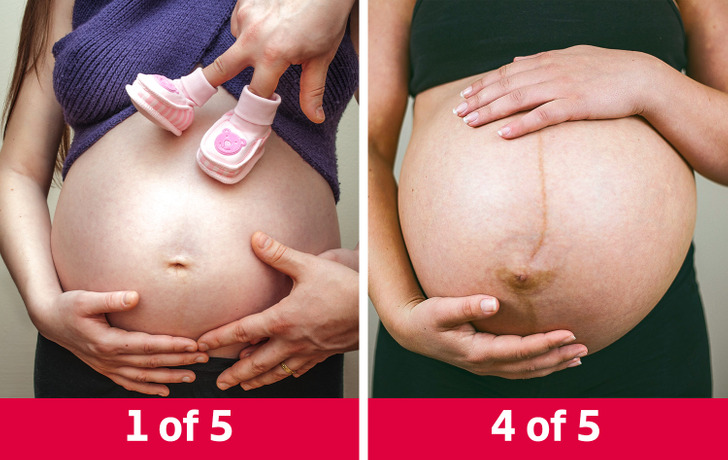19 Facts About Pregnancy That Would Even Stun a Gynecologist

What happens to a woman’s body during pregnancy is truly magical. In less than a year, a brain, a heart, and all the other organs are formed from two tiny reproductive cells, which keep becoming more complex and eventually grow into a separate organism. This organism is then born into the world and becomes a new person. We’ve compiled a selection of 19 facts that reveal the details of this remarkable period in a woman’s life.
- A pregnancy usually lasts around 40 weeks, but sometimes the duration of this period can deviate significantly from the norm. Thus, the longest recorded pregnancy that ended in labor lasted almost 54 weeks, and the shortest 21.5 weeks. Both babies were born healthy.
- The oldest woman to give birth was 66. Maria del Carmen Bousada Lara had twin boys, Christian and Pau, by C-section. The birth took place in 2006 at the Hospital de Sant Pau in Barcelona. Maria underwent IVF treatment in America. But in order to get the treatment she lied about her age, claiming that she was 55 years old, because she had already been denied the treatment in her native Spain.
- Iceland has the lowest number of Caesarean sections performed during childbirth, reaching an average of just 15.2 cases per 100 natural births. But in Turkey they are the most common, with an average of 50.4 cases per 100 natural births.

- The interval between twin births is usually around 15 minutes to an hour. But there have been cases where twins were born several days apart. The world record for the interval between the first and second birth was set in Cologne, Germany. The twins were born 97 days apart. One was born on November 17th, 2018, while the other one was born the following year.
- Babies in the womb can hiccup during the third trimester of pregnancy. This is because the fetus begins to make its first breathing movements. The diaphragm is involved in this process, which may occasionally cause hiccups.
- According to some reports, babies begin to learn their native language while still in the womb. After 26 weeks of pregnancy the peripheral auditory system is fully developed, so the baby can respond to sounds and recognize differences between them. Research with an electroencephalogram showed that the newborn’s brain clearly responds to the sounds of the mother’s language but remains indifferent to the sounds of other languages. This confirms the theory that language learning begins during pregnancy.
- A woman’s voice may change during pregnancy. This is because hormonal changes can cause the vocal cords to swell. But the voice is likely to return to normal after giving birth or breastfeeding.
- Breasts can change in size several times: first they get bigger, then smaller, then get bigger again, all within the same pregnancy. This happens because a woman’s body is adapting to the new requirements of a growing baby. The best solution in this situation is to buy an adjustable maternity bra that adapts to these changes.
- Breastmilk starts developing as early as 14 weeks into the pregnancy. In addition, lactation can start when the mom-to-be hears a crying baby, even if it’s not her own. This might seem strange, but it is a natural process of the body preparing to give the baby the nourishment they need, whenever they need it.
- The amount of blood in the body of the expectant mother increases by 40-50%. This helps to provide it with the extra oxygen needed to maintain a healthy pregnancy.
- In response to the increased volume of blood in the body, the future mom’s heart also increases in size. This helps to ensure good blood circulation throughout the body and the body of the unborn baby. Without this, the heart would have to beat much faster, like after a hard workout, to supply sufficient blood to all the internal organs.
- In Japan, a pregnant woman can get a badge that she can attach to her bag or clothes. The idea is that passengers on public transport will see this badge and give up their seat, even if the woman is early in her pregnancy and her belly is not yet visible.
- The baby can help regenerate the mother’s organs. A few years ago, researchers discovered embryonic stem cells in expectant mothers’ brains. They were found to migrate from the placenta to the mother’s organs, sometimes helping to repair damaged tissue.
- About 1 in 2,000 babies are born with teeth. They’re usually already a little loose, and sometimes they have to be removed by the doctor. These teeth can be painful for the mother during breastfeeding and can also be dangerous for the baby, since, if they dislodge, the baby may choke on them.
- The Guinness Book of World Records lists Sean Keeney from the UK, who was born with 12 teeth. So far, that’s the highest number of teeth a baby has ever been born with. However, they were then removed to prevent feeding problems, and he grew a second set 1.5 years later.
- In 4 out of 5 women, a dark line appears on the abdomen during pregnancy. This is due to an increase in hormone levels and goes away after the pregnancy when those levels return to normal. This line fades gradually over a few weeks or months, though in some cases it doesn’t disappear completely or takes much longer.
- In a recent study, scientists found that food preferences appear in babies as early as the third trimester. For example, if an expectant mother ate sweet carrots or drank carrot juice, the 4D ultrasound scan showed babies smiling. And if they had cabbage for lunch, the babies were seen frowning. Probably because of its bitter undertones. In this way, the researchers concluded that babies can distinguish flavors while still in the womb.
- By the end of the second trimester, the baby’s first poop, meconium, is formed. It will stay in the baby’s body until birth and then be excreted within the first 24-48 hours.
- Men can experience a sympathetic pregnancy, also called couvade syndrome. This happens when he experiences strong empathy for his partner, which causes similar symptoms to pregnancy. For example, the man may gain weight drastically, feel nauseous in the morning, and suffer from sleep disturbances. In more severe cases, symptoms may include contractions, increased fatigue, and postpartum depression.
What other facts about pregnancy do you know?
Share This Article



